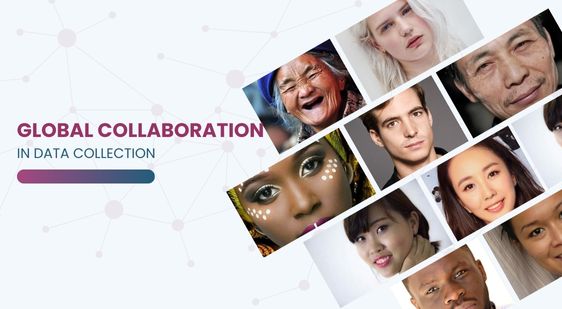Data collection is crucial for building efficient and trustworthy AI models. However, gathering data from diverse populations worldwide presents both significant benefits and challenges. International collaboration in data collection enriches AI systems by incorporating diverse perspectives. Yet, it also requires careful coordination due to variations in data protection laws, technology, and social norms. This blog explores the advantages, challenges, and strategies for effective global data collection to ensure diversity in the AI industry.
The Benefits of Global Diversity
Global data collection is essential for AI projects, providing comprehensive, varied, and representative information. These datasets allow models to generalize better and reduce bias, ensuring more accurate and inclusive outcomes.
- Reducing Bias: One key advantage of global data collection is its ability to minimize bias. By gathering data from different geographical, cultural, and socioeconomic backgrounds, AI models can more accurately reflect the global population. For example, in healthcare, using patient data from various regions allows AI systems to provide more accurate diagnoses across demographics, reducing the risk of misdiagnosis due to ethnic or cultural differences.
- Enhancing Performance Across Sectors: In industries like finance, managing global transactions strengthens fraud detection systems. Different regions may have unique patterns of fraudulent activity, so a detection model that works across countries will be more effective. Similarly, in autonomous vehicles, AI must adapt to varying environmental conditions, road signs, and weather, making global data collection vital for performance.
- Broader Insights: Global datasets offer valuable insights into trends and patterns that help AI systems cater to diverse user needs. For instance, recommendation systems trained on diverse data can capture varied cultural preferences, providing personalized suggestions that are more relevant to users in different regions.
Challenges in Global Data Collection
Despite its advantages, global data collection faces challenges related to infrastructure, legal regulations, and cultural norms.
- Infrastructure Disparities: Technological infrastructure is not evenly distributed worldwide. In some regions, accessing, storing, and transferring data is difficult due to a lack of resources. Additionally, limited internet access and low digital literacy can affect both the quantity and quality of data collected.
- Legal and Regulatory Barriers: Navigating different data privacy laws is one of the most complex aspects of global data collection. For example, the European Union’s GDPR imposes strict requirements on data collection, storage, and use. These rules may conflict with the laws of other countries like the US or China. AI developers must ensure compliance with local regulations while maintaining the integrity of their datasets.
- Cultural Attitudes Toward Data Sharing: Cultural perceptions of data privacy vary across regions. In some areas, individuals may be more willing to share personal information, while in others, there is greater reluctance due to concerns about privacy and surveillance. Understanding these cultural differences is crucial to building trust and collecting data ethically.
Collaboration and Standardization
Successful global collaboration in data collection depends on establishing standardized processes. Without standardization, insights drawn from global datasets may be inconsistent, leading to unreliable AI models.
- Uniform Data Labeling: Ensuring consistent labeling across regions is vital for effective data integration. Inconsistent labeling can cause discrepancies in model training. For instance, if road signs are labeled differently in datasets from various countries, an autonomous vehicle system might fail to recognize them accurately. Standardized labeling guidelines help prevent such issues and ensure smooth data integration.
- Standardizing Data Structures: The structure of the data must also be consistent. Variations in data formats can create problems when combining datasets from different regions. For example, healthcare AI models might struggle to interpret patient data from different countries if health records follow different formats. Standardized data collection methods ensure consistency, allowing AI systems to learn more effectively from global datasets.
Insights Gained from Global Diversity
Global data collection not only reduces bias and enhances performance but also provides valuable insights that make AI systems more adaptable and effective across regions.
- Cultural Sensitivity: AI models trained on diverse global data can better understand cultural nuances, making them more responsive to users from various backgrounds. For instance, a recommendation system can recognize cultural differences in shopping habits or entertainment preferences, providing more relevant suggestions to users worldwide.
- Improved Personalization: Global datasets enable AI systems to deliver more personalized outputs. In healthcare, an AI model can offer better treatment recommendations by considering region-specific health risks, lifestyles, or genetic predispositions.
- Global Product Development: Companies leveraging global data can create AI-driven products that resonate with users worldwide. Insights from diverse datasets help organizations design products that are both functional and appealing across different markets.







